Salento,Apulia is a friendly land that enchants and pampers its visitors persuading them to stay on. Visitors experience a sense of nostalgia and miss this enchanted land even before leaving. The history of Salento stretches back over two thousand years. If you are considering buying a house in Sale ...
MUST SEE...Salento
Among the places you must see there is the white Santa Maria di Leuca, the old “Finibus Terrae”, one of the extremities of Italy, the exact merging point of the Adriatic and Ionian seas, where the borderline between East and West, past and present, history and legend becomes imperceptible. It will seem to you to be at the ends of the earth, at the extreme border of the known world. A sightseeing tour in the town involves a visit to the sanctuary, which truly deserves the attention of the travellers.
A trip to Salento implies a stop in Castro, a fascinating city that is also an important archaeological site. Visiting the uniquely beautiful stalactite cave, the intrepid explorer will be amazed at admiring the radiant beauty of the marvellously preserved prehistoric paintings while enjoying the miraculous green-blue hues of the sea.
To experience the captivating wonders of Salento it would be ideal to go to Santa Cesarea Terme by motorboat and enjoy a typical dinner at Palazzo Sticchi, one of the most splendid and imposing villas in the region. Its strategic location in front of the sea creates a truly magic atmosphere in summer nights. The sky and the sea seem to become one and the calm water reflects the bright moon.
A special mention goes to the idyllic Otranto, the ideal setting to seal friendships and love stories. It is located in an impressive bay of the peninsula. It is the Eastern end of Italy and therefore a bridge towards the East. In the wonderful cathedral the visitor will admire the great mosaic that covers the floor and was conceived as an immense prayer carpet. It depicts two elephants supporting the tree of life and it was a source of inspiration for Dante himself. Otranto is also the perfect place for hiking, for an excursion by bicycle or for a ride on horseback. The area offers exceptional variegated flora and stunning views in practically intact natural areas which fill the heart with strong emotions. It is a paradise for the lovers of bird watching. Birds, indeed, would let you get close enough to be framed by your cameras. You will be struck by the fascinating beauty of this silent environment. Otranto’s important landmarks include the majestic legendary castle whose fantastic atmosphere inspired the world famous writer Walpole, who set his novel “The Castle of Otranto” here.
On the Ionian coast it is worth stopping off in Gallipoli, the “beautiful town” as its name derived from the Greek indicates. It is located on an island surrounded by the Ionian sea and linked to the mainland by a bridge. In the historic centre lovely narrow streets lead to fine piazzas and to the harbour. The link between land and sea is evident. Gallipoli, kissed by the sun, presents itself as a town that never tiers of being alive and offers endless possibilities for travellers to enjoy their stay. It is the perfect place for a pleasant holiday. Travellers are accommodated in delightful hotels that are equipped with all modern comforts and facilities. The town is the ideal place also for those who want to enjoy the night life due to the presence of exclusive restaurants, night clubs and discos.
The feather in the cap of the region of Salento is Lecce, the main city of the province. Here, what strikes most the traveller is the aristocratic withdrawal from the rushing tide of modern life that can still be perceived while passing through the historic centre. Lecce is renowned all over the world for its enchanting and unique baroque but there are also other historical monuments in the heart of the city that enrich its cultural heritage: the Roman amphitheatre, the Greek theatre and the imposing castle of Charles V, proving that the history of Lecce, the capital of art and culture in the region of Salento, stretches back over two thousand years.
For all it can offer, Salento is a friendly land which enchants and pampers its visitors persuading them to stay on.
Going to Salento you will enjoy a truly amazing holiday. It will be love at first sight. You will experience a sense of nostalgia and miss this enchanted land even before leaving.
Related Insights
-
Properties for sale Salento
-
Sell houses in Apulia Salento, sell house online free, buy homes, houses, insert a free advert about properties in Apulia Salento
Salento is a beautiful region in the Southern part of Apulia, Italy. The real estate property in Apulia is attracting the interest of many foreign investors. Foreign citizens choose primarily real estate properties in the countryside. They are interested in renovating rural homes to use them as thei ...
-
Investing and living in the region of Salento
Investing and living in the region of Salento Salento is imposing itself as the ideal destination for real estate investments. “The real estate market of Salento offers great investment opportunities, both in the hinterland and on the coast” – explains Antonio Magurano, the person re ...
-
Affordable real estate investments in the region of Salento
Affordable real estate investments in the region of Salento In the charming Grecia Salentina, there are many old palaces in need of renovation for sale The region of Salento – in southern Apulia – is widely known for being a region of magic, a colourful and lively area that welcomes its visito ...
-
Building techniques in the region of Salento
Building techniques in the region of Salento Travelling around Salento, it is still possible to find the traces of the ancient peoples that have made this corner of Italy a splendid and unforgettable place. This is true for the wonderful coasts and the charming hinterland, but also for the work o ...
-
MUST SEE...Salento
Among the places you must see there is the white Santa Maria di Leuca, the old “Finibus Terrae”, one of the extremities of Italy, the exact merging point of the Adriatic and Ionian seas, where the borderline between East and West, past and present, history and legend becomes imperceptible. It will s ...
-
Villas for sale in Apulia Salento, luxury property, luxury homes for sale, cottages, luxury house for sale in Apulia Salento
Salento is an attractive region located in the Southermost part of Apulia. Sea, Sand and Sun tourism is well developed but the attention of visitors is addressed also to alternative tourism opportunities. Are you interested in investing in the property market of Salento? Rely on professional and exp ...
-
House for rent in Salento Apulia, home rentals, homes for rent, apartments, condos, town homes, apartment rentals and rental homes in Salento Apulia
Are you thinking of spending your holidays in Salento? You will be delighted to taste the excellent strong and intense flavour of the local dishes made using the fresh and genuine products provided by the land. Salento is also the perfect place for water sports lovers. It is possible to take part in ...
Real Estate Listings
For sale Farmland, Italy, Lecce, Copertino, Contrada San Vito

For sale
Farmland
38040 m²
For sale House, Italy, Lecce, Lecce, Via Luigi Scarambone, 21
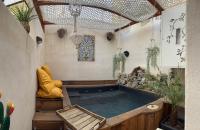
For sale
House
82 m²
For sale Other (Residential), Italy, Lecce, Patù, Via Generale Armando Diaz
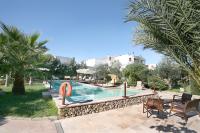
For sale
Other (Residential)
460 m²
For sale Building, Italy, Lecce, Patù, Via Generale Armando Diaz
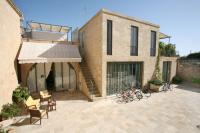
For sale
Building
460 m²
For sale 3 Bedrooms, Italy, Lecce, Lecce, Via Corvaglia

For sale
3 Bedrooms
118 m²
For sale Other (Land), Italy, Lecce, Palmariggi, contrada Montevergine
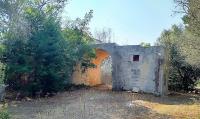
For sale
Other (Land)
50000 m²
For sale Farmhouse, Italy, Lecce, Muro Leccese, Via Cesare Battisti 25
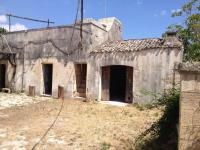
For sale
Farmhouse
1100 m²
For sale Trullo, Italy, Lecce, Patù, Patù San Gregorio
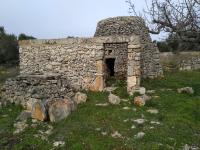
For sale
Trullo
2500 m²
For sale Farmhouse, Italy, Lecce, Patù, Presicce
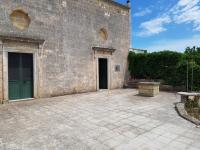
For sale
Farmhouse
2500 m²
For sale House, Italy, Lecce, Casarano, via biancamano, 3
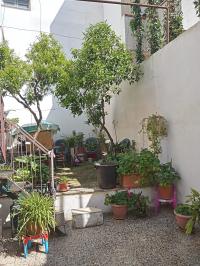
For sale
House
65 m²
